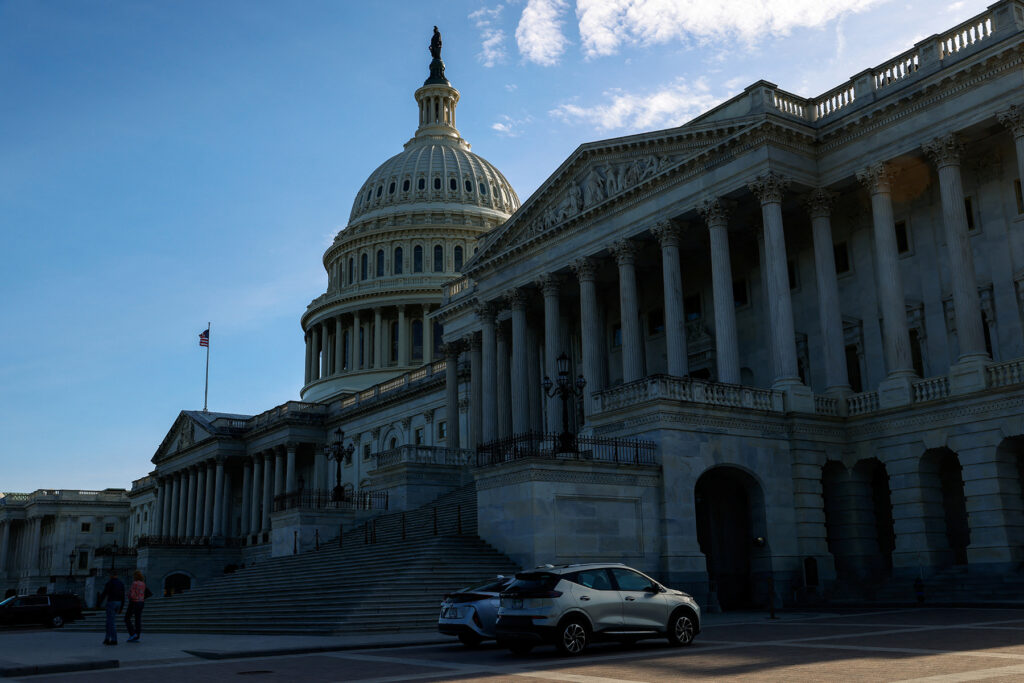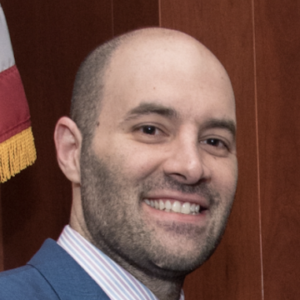In November, the U.S. House of Representatives passed the “Stop Terror-Financing and Tax Penalties on American Hostages Act,” or H.R. 9495, despite opposition from hundreds of organizations. Many of them expressed concern over possible constitutional violations that would result from enactment of the bill, and the American Civil Liberties Union described it as “broad,” “vague” and “an open invitation for abuse.”
H.R. 9495 aims to protect Americans held hostage abroad from being subjected to penalties and fines imposed by the Internal Revenue Service due to delays in their tax filings, but it also includes the text from a separate bill, H.R. 6408, which would rescind tax-exempt status of alleged “terrorist-supporting organizations.” While the opposed organizations support the protection of Americans held hostage from IRS penalties, they oppose granting the executive branch, and the incoming Trump Administration, broad authority over the tax-exempt status of a wide range of non-profit organizations.
“The diverse group expressed deep concerns about the bill’s potential to grant the executive branch extraordinary power to investigate, harass, and effectively dismantle any nonprofit organization — including news outlets, universities, and civil liberties organizations like ours — by stripping them of their tax-exempt status based on a unilateral accusation of wrongdoing,” the ACLU wrote in outlining an open letter sent to House Speaker Mike Johnson and Democratic Leader Hakeem Jeffries in September.
Kia Hamadanchy, a senior policy counsel at the ACLU, told First Amendment Watch that the ACLU is “disappointed” the bill passed the House, “but is going to continue to work to make sure it doesn’t become law this year and block it in the Senate.”
“We feel pretty good about our chances on that front, but we expect this and other attacks on civil society will return next year,” he said.
In an interview with First Amendment Watch prior to the bill’s passage in the House, Hamadanchy described the free speech issues in the bill, noted the possible reasons for its introduction and expressed concerns over its power in the next presidential administration if enacted.
Editor’s note: This interview has been edited and condensed for length and clarity.
FAW: The first section of the bill aims to “postpone tax deadlines and reimburse paid late fees for United States nationals who are unlawfully or wrongfully detained or held hostage abroad.” The second section of the bill aims to rescind tax-exempt status from organizations deemed to be in support of terrorist organizations. The ACLU has argued that the second section could threaten nonprofit media and activist organizations, even as the first section could assist journalists who have been held hostage abroad — like the Wall Street Journal’s Evan Gershkovich and the Washington Post’s Jason Rezaian. Why do you think both provisions, either of which can hurt or help journalists, are included in this bill?
Hamadanchy: So “hostage bill” seems great, right? It seems like the sort of thing that anyone would support. That’s why it [S. 4057] cleared the Senate unanimously by itself. And there’s, in fact, a separate version in the House [H.R.7791] with just the hostage provisions. And so that is the starting point. But in terms of why they put it together, 6408 kind of sailed through the first time in the House. But what ended up happening was we kind of raised the alarm as soon as it passed the House. [This letter] was the first time we did anything public on it. And then after it died in the Senate, the House Ways and Means Republicans introduced a new version in September with the two bills linked and marked it up in Committee, which is the bill we saw on the floor. And I think that the move from House Republicans was, “Let’s take this bill that’s stuck and try to attach it to something that everyone likes, that everyone wants to pass,” with the idea that it would be really hard for people to vote “no” because it would be attached to the hostage provision.
FAW: What are the free speech or political speech implications that are involved here?
Hamadanchy: I think the concern is that it will chill speech because there’s such a unilateral discretionary authority in the Treasury Secretary to do this, and because there might be concern that Trump is going to use this and abuse this authority if he had it. The concern is that people are going to not speak out when they otherwise would because they’re afraid of someone coming after them and trying to shut them down.
FAW: How specifically is the legislation vague? What exactly is the First Amendment problem with this legislation? In what situation would those issues come up?
Hamadanchy: The First Amendment problem is that the sponsors are trying to get at advocacy/speech by conflating it with material support for terrorism when they haven’t met the standard set out by the Supreme Court (which requires it to be at the direction of or in coordination with an FTO [Foreign Terrorist Organization]). And the broader issue is that this is an attempt to chill speech and advocacy. And the bill itself is also very unclear on a number of things (on issues like what is the standard/burden of proof required for a designation and on the cure process and other issues along those lines).
FAW: So you would say there’s a vagueness problem here?
Hamadanchy: Somewhat. I think the biggest issue is there’s so much discretion put in the hands of the Secretary of the Treasury. They’re the judge, they’re the jury, and they’re the ones who decide and take away nonprofit status. They’re basically playing all roles.
FAW: So this raises due process issues regarding the power given to the Treasury Secretary?
Hamadanchy: The discretion is placed entirely in the hands of the Secretary of Treasury and you can have your nonprofit status stripped before you ever have the chance to have a hearing before a neutral decision maker. And while it purports to have a “cure” process, it’s not really, as it’s entirely up to the Treasury Secretary and you aren’t necessarily provided with any evidence against you (or exculpatory evidence), leaving you entirely in the dark as to what conduct you are even trying to rebut.
FAW: Since the bill would give the Treasury Secretary total control over deciding whether a nonprofit organization had provided “material support” to a terrorist organization, as you mentioned, are you worried a nonprofit organization could be unjustly targeted for activism or news-like functions?
Hamadanchy: Absolutely. This is clearly based on what was happening in the protests surrounding Gaza on college campuses and whatnot. But that doesn’t mean that it might not be used in a far greater or broader context, especially given the fact that Trump won the election. He’s not been quiet about his plans to go after his perceived enemies and protesters. There’s a lot of nonprofit media out there, and he’s not exactly the biggest fan of the press.
FAW: How can this legislation affect nonprofit organizations of various focuses, especially when dealing with people on either side of sensitive geopolitical issues? Could that put certain humanitarian groups at risk? What are some examples of gray areas that a lot of nonprofits fall into that would be compromised if the Trump administration decided they were providing “material support” to terrorists?
Hamadanchy: The U.S. government has a long history of abusive and discriminatory material support investigations and prosecutions in the post-9/11 era — disproportionately against Muslims, charities and civil society organizations. Former President Jimmy Carter once criticized the federal material support law saying it “threatens The Carter Center’s work and the work of many other peacemaking organizations that must interact directly with groups that have engaged in violence.” President Carter noted: “The vague language of the law leaves us wondering if we will be prosecuted for our work to promote peace and freedom.” And what you’ve seen in the House record is while there are allegations that U.S. organizations that are operating in violation of their tax-exempt status because of suspected ties to terrorism as a justification for why this law is needed, no evidence was provided by the Committee that any of the alleged activities have occurred in coordination, or at the direction of, a foreign terrorist organization. In Holder v. Humanitarian Law Project, the Supreme Court stated that the federal statute prohibiting material support to terrorist groups criminalizes “advocacy performed in coordination with, or at the direction of, a foreign terrorist organization,” and confirmed that independent activity is not criminalized. What is clear however from how the bill’s sponsors have pushed this is that they think it should apply more broadly to activities that it clearly wouldn’t under current law. And that ultimately may not hold up in court, but that doesn’t mean that they wouldn’t be able to do a lot of damage via a designation, and there’s also the chilling speech impact in terms of organizations that might curtail their activities in response.
FAW: In December 2023, according to the Freedom of the Press Foundation, 14 state attorneys general and 15 members of Congress called “for news outlets to be investigated and even prosecuted for ‘material support’ of terrorism by working with Palestinian freelance photojournalists.” Did accusations like this spark the creation of H.R. 9495?
Hamadanchy: That’s exactly the example of the sort of things that we should be concerned about in the Trump administration. No one has really talked about that example in the context of this bill, but that’s definitely something I’d be concerned about.

